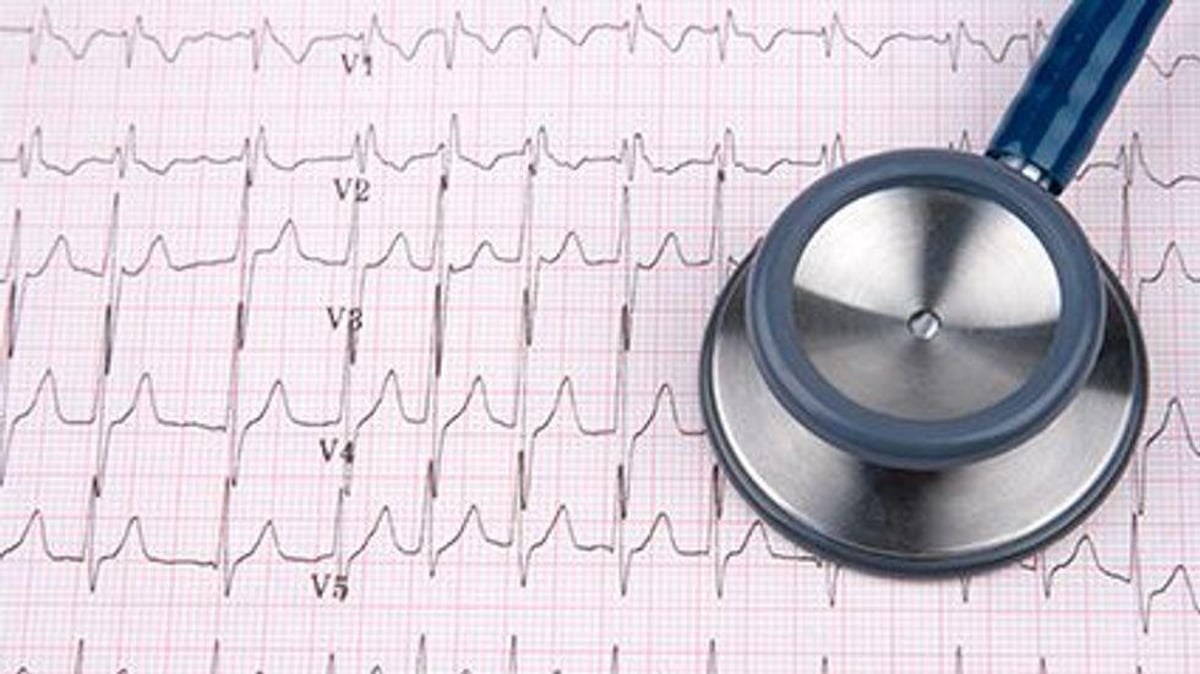No Evidence of Malignant, Sustained Arrhythmias Seen After COVID-19

TUESDAY, Jan. 25, 2022 (HealthDay News) -- For outpatients after a positive COVID-19 diagnosis, there is no evidence of malignant or sustained arrhythmias, according to a study published online Jan. 20 in Open Heart.
Thomas A. Dewland, M.D., from the University of California San Francisco, and colleagues examined the prevalence of arrhythmia among outpatients after a COVID-19 diagnosis. Fifty-one individuals underwent 14-day ambulatory electrocardiographic monitoring at a median of 75 days after a positive COVID-19 test.
The researchers found that none of the participants exhibited atrial fibrillation, atrial flutter, sustained supraventricular tachycardia, sustained ventricular tachycardia, or infranodal atrioventricular block. Ninety-six percent of participants had an ectopic burden of <1 percent; one had a supraventricular ectopic burden of 2.8 percent; and one had a ventricular ectopic burden of 15.4 percent. Ninety-two percent of participants triggered their monitor for palpitation symptoms; of these triggers, 78 percent were for sinus rhythm or sinus tachycardia.
"Although these findings cannot exclude the possibility of serious arrhythmia in selected individuals, they do not support a strong or widespread proarrhythmic effect of COVID-19 infection after resolution of acute illness," the authors write.
One author disclosed financial ties to Element Science and iRhythm Technologies.
Related Posts
Your Morning Cup of Coffee Can Affect Your Heart’s Rhythms
https://consumer.healthday.com/11-15-coffee-can-af... Credit: HealthDay
Aumentan las tasas de suicidio de los estadounidenses de origen hispano
JUEVES, 18 de agosto de 2022 (HealthDay News) -- El suicidio es un importante...
La mayor parte del pollo de los supermercados está lleno de grasa blanca, según un informe
MARTES, 21 de septiembre de 2021 (HealthDay News) -- Un nuevo informe de The...
Natural Environments May Cut Hospitalization for Patients With Neurodegenerative Diseases
FRIDAY, Dec. 30, 2022 (HealthDay News) -- Certain natural environments are...
